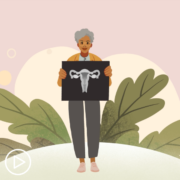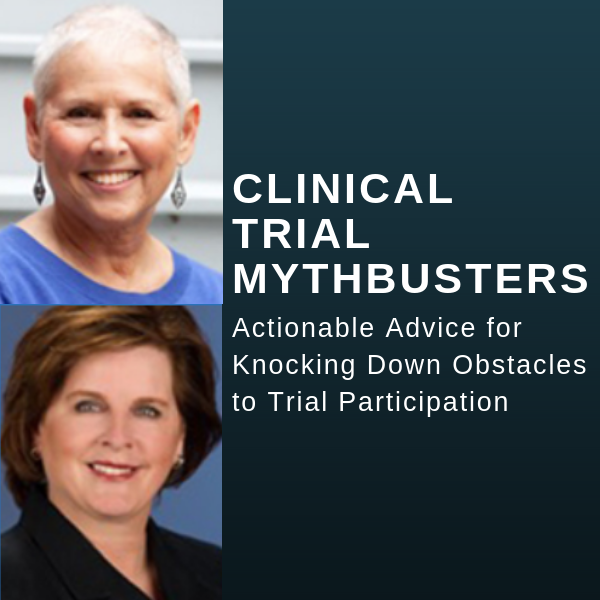Empowered Care: A Patient’s Guide to Navigating Endometrial Cancer
Empowered Care: A Patient’s Guide to Navigating Endometrial Cancer from Patient Empowerment Network on Vimeo.
Meet Sharon, a 61-year-old endometrial cancer survivor who knows firsthand the importance of being an active participant in her healthcare. After a two-year struggle with misdiagnosed symptoms and a dismissive doctor, she took charge and found the right medical support, leading to a diagnosis of endometrial cancer.
Sharon’s journey, from diagnosis to treatment and recovery, highlights the vital role of self-advocacy and patient activation. Her story is a beacon for others, especially women of color facing similar challenges, emphasizing the power of being informed, asking questions, and seeking support.
Download Guide | Descargar Guía en Español
See More from [ACT]IVATED Endometrial Cancer
Related Resources:
Transcript:
Being activated is a critical part of endometrial cancer care, especially for patients like me.
My name is Sharon, I’m 61, and my diagnosis came after a two-year struggle with unidentified symptoms. Sharing my experience is my way of reaching out, hoping it might provide guidance to others facing similar challenges.
My symptoms began with abnormal vaginal bleeding, but my periods had ended over 10 years ago. That had me worried, and my sister encouraged me to see a doctor after I told her about the bleeding. I scheduled an appointment, but my doctor dismissed my symptoms. I felt like he wasn’t really listening to me and decided to find a doctor who looks more like me and would be more likely to listen to me. I found a Black female doctor who was concerned about my symptoms, which had worsened by then. I was also feeling pelvic pain. My new doctor scheduled an endometrial biopsy, and I was diagnosed with papillary serous carcinoma shortly afterward.
With an aggressive type of cancer, my oncologist scheduled a laparoscopic hysterectomy to remove my uterus along with my ovaries, fallopian tubes, and sentinel lymph nodes. I had the surgery within a few days, which was quickly followed by radiation to help ensure any remaining cancer cells were wiped out. My recovery went smoothly, and I continue to live a full life while getting regular scans to ensure I remain cancer-free.
After my cancer experience, I want to educate other women about what I’ve learned about endometrial cancer. Black women have nearly twice the death rate from endometrial cancer compared to white women. Hispanic, Black, and Asian women are not represented in clinical trials at equal rates to white women. And Black women are also diagnosed more frequently with rare but aggressive endometrial cancer forms. Remember that you shouldn’t have to suffer with your pain, and you can advocate for yourself and ask about patient advocates to advocate on your behalf.
Here are my activation tips for patients facing an endometrial cancer diagnosis:
- Ask your care team questions to learn about the status of your endometrial cancer, treatment options, and what to expect during and after treatment.
- Join a patient support group to offer and receive emotional support.
- Last but not least, inquire if a clinical trial may be a potential treatment option for your endometrial cancer.
Remember, stay activated by being informed, empowered, and engaged in your cancer care.
Share Your Feedback:
Create your own user feedback survey













